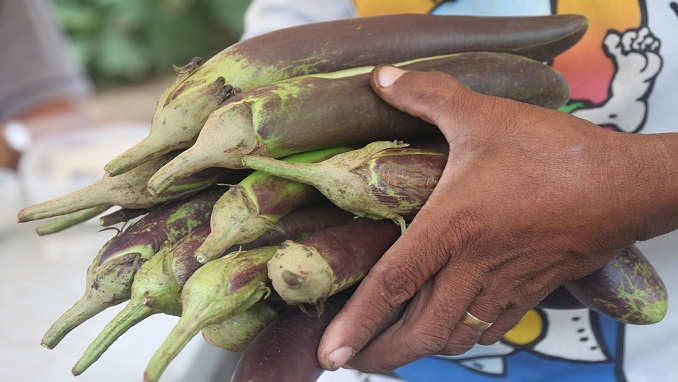October 16 is World Food Day, commemorating the date of the founding of the United Nations Food and Agriculture Organization (FAO) in 1945. The day is a chance to reflect on the challenges facing the global food supply and nutrition – and for us, a chance to look at biotech solutions.
The 2023 theme – Water is life. Water is food. – highlights the importance of water to food and health.
“What we eat, and how that food is produced all affect water. Together, we can take water action for food and be the change,” says the FAO.
How biotech can support water and food
The UN FAO highlights the role for all sectors of society, including businesses, in ensuring access to water and nutritious food.
Businesses have a role to play in improving water efficiency, reducing pollution, reducing food loss and waste, and improving technology and innovation, says the organization.
Biotechnology, of course, can assist in all of these endeavors. As we reported, gene editing is one of the most exciting tools in the fight against food waste. Biotech companies are developing crops like potatoes and mushrooms that resist browning, and strawberries that have a longer shelf life. Others are turning food waste into biodiesel.
Biotechnology is also addressing contamination and pollution by developing biology-based tools for purifying water and plastic alternatives that biodegrade in water.
Past World Food Day highlights leaving no one behind
World Food Day 2022 focused on leaving no one behind when it comes to access to nutritious food. The 2022 theme is Leave NO ONE Behind, meaning we must ensure everyone has access to enough high-quality, nutrient-dense food.
In 2021, there were 828 million hungry people around the world, an increase of 46 million since 2020 and an increase of 150 million since the COVID-19 pandemic began.
At the same time, however, one-third of the food that is produced across the world is lost or wasted.
According to the World Food Programme (WFP), one of the main causes of hunger—along with persistent poverty, armed conflict, and economic shocks—is food loss. Food loss also entails a waste of the resources—such as energy, water, and land—that are utilized to create food.
“Conflict, climate change, slowdowns and downturns, inequality, rising food prices are denying progress to many, limiting progress for us all,” says the UN FAO. “Sustainability starts with equal opportunity—more and good quality food for all.”
Biotechnology can help address hunger, food waste
Biotechnology presents many opportunities for addressing the effects of supply chains, climate change, and food waste on hunger and our global food supply.
In particular, gene editing is creating crops with improved drought resistance, increased shelf life, and less food loss and waste, as well as crops with improved nutrition to feed the globe and even food animals that can handle high temperatures.
Fortunately, a lot of countries are paying attention. Kenya, where 3.5 million people suffer from acute hunger, recently lifted its ban on genetically modified organisms (GMOs) to address drought. The United States has approved the first genetically modified crop for commercialization under new standards: a purple tomato with higher nutrition content.
However, some countries still have work to do to develop and deploy biotechnology in the food supply–notably Mexico, which is still pushing a GMO corn ban that would reportedly cost the United States and Mexico billions of dollars.
Read more: Biotech can boost agriculture productivity, sustainability




